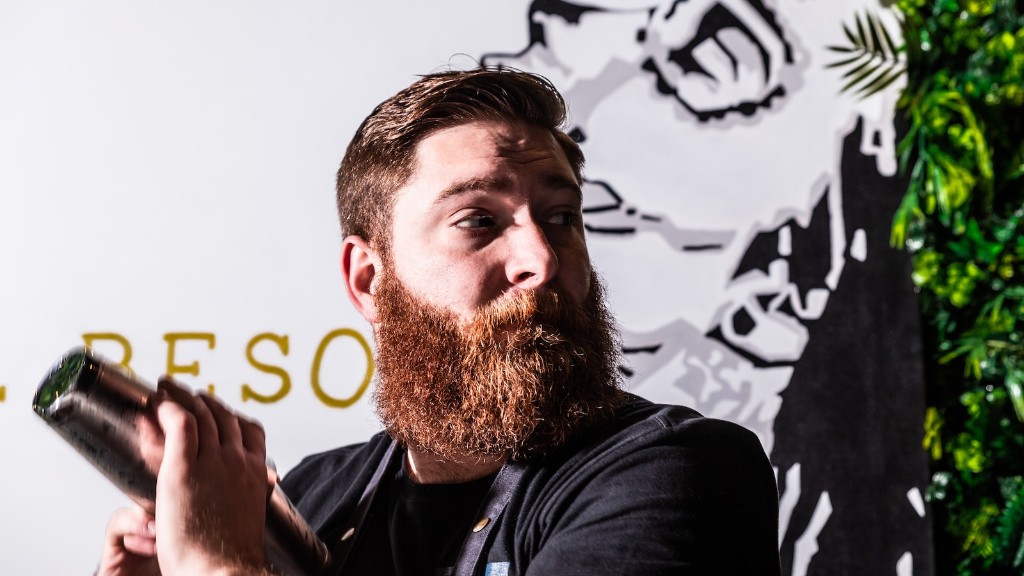There’s no question that beards are back in style. But are the products that claim to help you grow a thicker, fuller beard actually effective?
Let’s take a closer look at what’s available on the market and what the science says about these products.
Yes, beard growth products are real. There are a variety of products on the market that claim to help with beard growth, and some of them may work for some people. However, there is no guarantee that any particular product will work for everyone, and some people may not see any results at all from using these products.
Are beard growing products real?
There are a lot of different beard growth kits on the market, and it can be tough to know which one to choose.
I’ve tried a few different brands, and I can say from experience that they do work.
The key is to find a kit that contains the right mix of ingredients for your individual beard.
Some of the most important ingredients in a beard growth kit are:
· Beard oil
· Beard vitamins
· Beard balm
· Beard shampoo
If you can find a kit that contains all of these things, you’re on the right track.
I would also recommend looking for a kit that comes with a beard comb or brush.
This will help you to keep your beard looking neat and tidy, and it will also stimulate hair growth.
So, to answer the question, “Do beard growth kits work?”
Yes, they definitely do!
Beard oil is a cosmetic product designed to improve the appearance of beards and the skin beneath them. It hasn’t been scientifically proven to beards grow faster. It can, however, make beards look fuller, softer, and lusher.
What stimulates beard growth
Testosterone and Dihydrotestosterone (DHT) are both hormones that are responsible for regulating and stimulating facial hair growth. In most cases, higher levels of Testosterone and DHT will result in faster, thicker, and better beard growth. Having low levels of Testosterone can negatively affect your beard growth.
There are a few things that you can do to help improve the thickness and fullness of your beard. First, make sure to keep your testosterone levels within a healthy range by exercising regularly and eating a nutritious diet. Getting enough restful sleep is also important for maintaining hormone levels. Finally, consider exfoliating your skin to remove any dead skin cells that could be blocking hair follicles. By taking these steps, you can help your beard grow as thick and full as it naturally can.
Are beard growth oils worth it?
Beard oil can help to promote healthier skin, which means more streamlined facial hair growth in the long run. The essential oils found in beard oil provides a nourishing treatment for your beard hair, as well. The oil can help to soften roughness, add some much-needed elasticity, and smooth stray hairs.
Most men will have a full beard by their early 20s, but some may need to wait until they hit 30 to reach full beard growth. Puberty might initiate the facial hair growing process, but how fast and thick your beard grows will depend on factors that we’ll discuss below, including genetics and hormone levels.
How do you fix a patchy beard?
If you’re struggling to grow a full, thick beard, don’t worry – you’re not alone. Many men have patchy or thin beards, and it can be a frustrating problem. But there are a few things you can do to improve the situation.
Here are some tips for how to fix a patchy beard:
1. Grow it out
This is the most obvious solution, but it’s also the most effective. If you give your beard time to grow, it will eventually fill in. Be patient and don’t be tempted to trim or style your beard too much, as this can make the problem worse.
2. Keep it trim
While you’re waiting for your beard to fill in, it’s important to keep it neatly trimmed. This will give the illusion of a fuller beard, and it will also make it look neater and more orderly.
3. Try a new style
There are many different beard styles to choose from, so experiment until you find one that suits you. Some styles are better suited to hiding patches than others, so it’s worth trying out a few different looks.
4. Take care of your beard hair
Just like the hair on your head
The most important step to training your beard to grow is to brush in a downward direction toward your chin. This helps to shape your beard and train the stubborn hairs to grow in the right direction. A beard brush or Sardar comb is perfect for this.
Why can’t some men grow beards
There are many reasons why some men can’t grow a beard, but the most common is due to genetic factors. Some men who have trouble growing beards have turned to beard implants as a solution. Although beard implants are now available, they’re expensive and are a surgical procedure. So careful evaluation of the risks and benefits should be considered before pursuing this option.
If you’re considering using Rogaine to help treat your beard, it’s worth discussing it with your doctor first. There’s very little evidence that it’s quite as effective for beards as it is for scalp hair, and there are potential side effects to consider.
Is it OK to put on beard oil everyday?
Beard oil is a great way to keep your beard looking healthy and hydrated. If you’re using a reputable brand, you can rest assured that it’s safe for everyday use. To get the full growth and care benefits, try to use it at least once a day.
Beard oil has a few disadvantages that should be considered before using it. Firstly, it can leave the skin greasy and/or oily. Secondly, beard oil is, well, oil. This means it doesn’t provide any hold for medium to longer length beards. Thirdly, it’s not the cheapest addiction. Fourthly, your new mane may become distractingly soft. Finally, it can cause unwanted attention.
Do beard growth rollers work
If you’re looking for a way to make your beard thicker, beard rollers may be a good option. When used properly, they can activate hair growth and help your beard appear fuller. Additionally, beard rollers can break up scar tissue around hair follicles, which can allow new hair to grow.
Facial hair typically grows half an inch every month. So, a two month beard is usually around one inch long. This means that you can start doing some light, careful trimming. However, beware of trimming too much – overdoing it at this point can be bad news.
Does shaving stunt beard growth?
There is a common misconception that shaving hair will change its thickness, color or rate of growth. However, this is not the case. Shaving simply gives the hair a blunt tip. The tip might feel coarse or “stubbly” for a time as it grows out, but this is only temporary. During this phase, the hair might be more noticeable and perhaps appear darker or thicker. However, once the hair reaches its full length, it will be the same as it was before it was shaved.
Growing a fuller beard can be a challenge for some men. However, there are a few things you can do to help promote beard growth. First, it is important to have a good skin care routine. This will help to keep your skin healthy and promote hair growth. Second, keep your stress levels low and get plenty of rest. This will help to keep your body healthy and encourage beard growth. Third, eat a healthy diet and exercise regularly. This will help to improve your overall health and promote beard growth. Fourth, drink plenty of water. This will help to keep your skin and hair healthy and promote beard growth. Fifth, take vitamins. This will help to improve your overall health and promote beard growth. Sixth, use proper beard care products. This will help to keep your beard healthy and promote beard growth. Finally, style your beard in a way that works for you. This will help to keep your beard looking its best and promote beard growth.
Conclusion
There is no simple answer to this question as it depends on the specific product in question and the person’s individual physiology. However, in general, it is possible for products to stimulate hair growth on the face, including the growth of facial hair. Whether or not a given product is effective for a particular person may depend on the individual’s response to the active ingredients. Additionally, some products may only be effective for a limited time, and the results may not be permanent.
Beard growth products are not likely to have a significant impact on the growth of facial hair. Thescience behind these products is often weak, and there is little clinical evidence to support their use. In addition, many of the active ingredients in these products are available in other, more affordable products. Overall, beard growth products are not likely to be an effective way to improve the thickness or density of facial hair.





